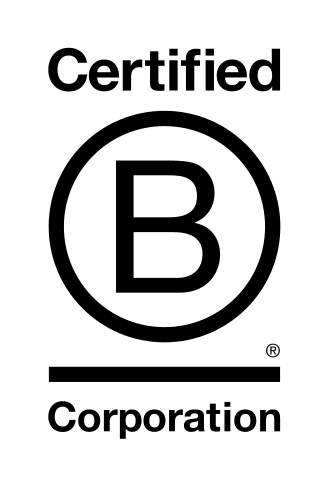
Sheenagh Gordon-Hart, Independent Director at The Director’s Office
Approaching the end of the year is always a busy time – and it’s not just the need to catch up with all those colleagues you meant to see during the year before the festive break begins. Most of us in Luxembourg have calendar year ends for our clients and need to catch our breath as the regulatory reporting requirements loom large alongside usual statutory financial reporting.
Think SAQ, that replaced the long-form report, and the voluminous reporting on SFDR amongst others. There is little doubt that regulatory reporting exacts a financial cost and unfortunately although it was hoped that the introduction of the SAQ would make for reporting improvement it also led to higher fees levied by audit firms. As discussed below, fund costs in Europe have fallen over the past ten years and boards have a responsibility to monitor the services provided by third and related parties, and to be mindful of the value they provide; part of this will include challenging rising fees.
In Luxembourg where salaries are subject to indexation, there is unavoidable pressure to increase costs for example for audit and legal fees, but boards rightly scrutinise these and, in some cases, may opt to switch providers where significant savings can be achieved. Changing service providers is not always easy, nor without risk, but over the past eighteen months I have had two clients that have made such changes, one principally due to costs and the other because of consistently poor service levels. In one case, the fund promoter – a big name in our industry – had a long-standing relationship with a global provider for all its fund ranges and broaching the issue of change could have been very difficult. In the end, discussions escalated through the organisation and the board secured the backing of the group to switch providers.
Directors’ fees – usually paid only to independent directors – are not the most significant cost on a fund’s P&L, but they should be visible to investors, and independent directors should be ensuring full disclosure. Numerous studies published on trends in director fee levels both here in Luxembourg and in Ireland are available; such studies provide some measure of benchmarking, although levels of transparency vary widely. Where full disclosure is made it is clear that fee levels vary enormously. Recently a study by Fitz Partners of directors’ fees suggested that the remuneration of independent directors in Luxembourg and Ireland had fallen by 16% to end June 2023. I have to say that anecdotal evidence here in Luxembourg doesn’t fit that narrative.
In trying to assess why fees may appear to be falling on average, a number of factors may be at play. There are certainly cases where low fees might be pitched by a would-be independent director keen to build a portfolio, but this is surely a high-risk strategy and one that does nothing to enhance the reputation of what is a profession and not a hobby. There are cases where fees may be agreed at a lower level in the start-up phase, with increases agreed to take effect as assets grow, so for example, the strong growth being witnessed in start-up alternative funds may account for an element of fee compression. Some have suggested that competition is driving fees down, i.e. that the number of independent directors chasing each new mandate has grown significantly, or that fund promoters have cut fees as they seek to trim expense across the business. Taken as a whole, it does appear that the cost of investment in funds has been falling overall.
Research undertaken by ICI Global published in October found that there had been a 20% reduction in overall UCITS costs since 2013, with recent data indicating that costs continued to decline in 2022. However, the headline data masks a discernible growth in distribution of lower cost funds such as ETFs and index trackers. Again, there is scant evidence amongst my professional colleagues that established promoters have tried to reduce directors’ fees; most promoters are only too aware that the responsibilities of board members have been growing as regulation has made ever increasing demands, magnifying the personal risks associated with serving as an independent director. The costs incurred in acting as a professional independent director have risen too, which casts doubt on the notion that fee levels are falling in any significant way. Certainly, most fund promoters should be keen to demonstrate to their end investors and distribution partners how they value the principles of good governance, part of which will be to demonstrate this through board reporting.
Interestingly last year’s Deloitte report on Luxembourg’s top 100 funds showed that a separate directors’ report was not made available in the annual report and accounts by all of the top 100 funds, and well below half of these very large funds actually disclose directors’ fees. I find this astonishing, as surely this is something that independent directors should be keen to promote to demonstrate their engagement with the fund and their commitment to good governance and the investor interest. The Alfi Code of Conduct, first published in September 2009 and subsequently revised, clearly sets out standards of what should be expected in terms of good governance and in respect of directors’ fees its guidelines state, inter alia, that the board should ensure that the remuneration of board members is reasonable and fair and adequately disclosed, and that remuneration should take account of the size, complexity and investment objectives of the fund. Taken as a whole, if Deloitte’s research on the largest funds is mirrored across the universe of funds, the industry has some way to go in meeting best practice standards of transparency on directors’ fees – independent directors should be encouraging fund promoters to support practice improvement.
In closing, the issue of VAT on directors’ fees has been a vexing one and as we know, the wheels of justice can turn exceedingly slowly. Since 2017, independent directors have been subject to VAT compliance obligations on certain types of mandates. In early December, the European Court of Justice is expected to rule on whether VAT is applicable: currently, for example, (and very broadly) fees paid in respect of directorship of a UCITS, as a regulated fund, are not subject to VAT, whereas VAT has to be applied to fees charged for directorship of a management company. The reporting of VAT is cumbersome for independent directors and many hope that the decision will rule that VAT should not apply, either for unregulated funds or management companies. Assuming the ruling does change the applicability of VAT in this way, if the decision is applied retrospectively, it could prove messy, but in the longer run removal of VAT compliance reporting will make life simpler all round. And that would be a reason to enjoy a bit more festive cheer!




